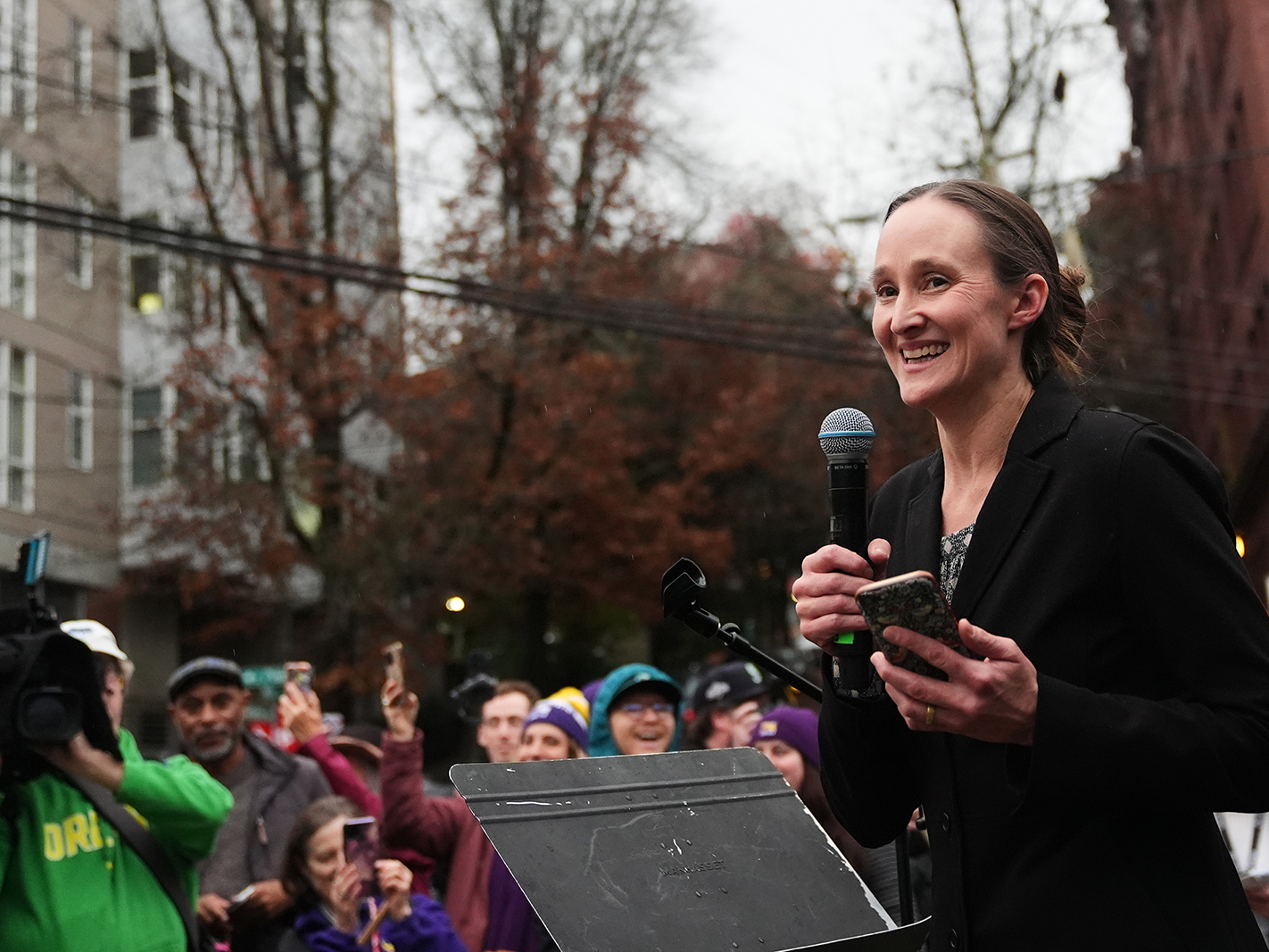News
The Real Deal: Katie Wilson, Seattle’s socialist answer to the affordability crisis
Posted on

This story was originally published by The Real Deal on Nov. 19, 2025.
Like Mamdani in New York City, political novice ran against rising prices, wealth disparity on her way to leading one of America’s largest cities.
By Christopher Neely
Any mayoral race in Seattle would be hard-pressed to compete with New York City for national attention, and that seemed especially true this year. Anyone reading the headlines would be forgiven for thinking that democratic socialist Zohran Mamdani’s Big Apple defeat of former governor Andrew Cuomo was the lone mayoral election in 2025.
Yet, 3,000 miles away, an upset with similar political intrigue gripped Seattle, as newcomer Katie Wilson, also a socialist, beat incumbent Mayor Bruce Harrell. Wilson claimed victory by only a few thousand votes on 55 percent turnout in a city of nearly 1 million.
Wilson, like Mamdani, trounced her establishment-aligned opponent in the primary and won a rematch in the general election. The socialist candidates focused on the growing affordability crisis in their respective cities, and appealed to young voters with solutions viewed by some as radical. In addition to their political persuasions, both drew criticism for a lack of experience. Yet, unlike Mamdani, who represented part of Queens as a state assemblyman, Wilson will assume the mayor’s gavel with no electoral experience.
In fact, before entering the race in February, Wilson, who’s been called a tax policy wonk, had never sought public office.
She dropped out of Oxford College six months before graduation, and over the last decade-plus has worked primarily in community organizing. She co-founded the Transit Riders Union, and has worked to build support for ballot measures that, as the New York TImes has reported, “expand transit access, increase renter protections and add housing” through higher taxes on the wealthy.
Wilson threw her hat in the ring after Harrell led a ballot campaign to block a new tax on the city’s highest earners to finance new affordable housing.
“I ran for mayor because we have an affordability crisis in Seattle,” she told CNN last week. When asked about her political philosophy, Wilson said “being socialist is first of all about a belief in good governance. It’s damaging when people lose faith in their ability to tackle big challenges.”
For Wilson, who notably didn’t run under the socialist banner but doesn’t shy away from the label, those big challenges include housing and homelessness. One of her marquee proposals targets the city’s roughly 2,800 vacant, rent-subsidized apartments. Wilson has proposed redirecting voter approved housing construction funds to create 4,000 emergency units intended to house the city’s record homeless population — over 16,000 people as of latest count. Many of those new housing units would come through redesignating the 2,800 vacancies.
The mayor-elect has also pointed to the work by King County, which counts Seattle as its biggest city and seat of government, to research the feasibility of a $1 billion housing construction bond. As part of her platform, she said she wants the city of Seattle to explore its own $1 billion housing bond. The money ties into her pursuit of a Seattle with more social housing; that is, publicly owned with permanently subsidized rents.
Similar to Mamdani, Wilson faced almost united opposition from Seattle’s establishment Democrats and business community. Amazon, with its size and gravitation pull on economic development, is arguably Seattle’s most important employer but has increasingly relocated workers across Lake Washington to Bellevue. Wilson has supported higher taxes on companies like Amazon.
On Sunday, the editorial board of the Bezos-owned Washington Post published a heavily critical take on Wilson. The editorial board called Seattle “a petri dish of failed progressive social experiments and absurdly high taxes,” and warned that Seattle’s 33 percent office vacancy rate could rise if Wilson’s is able to implement her platform.
“The mayor-elect’s plans will simultaneously accelerate the exodus of businesses while making the city more of a magnet for vagrants and criminals,” the editorial board wrote.
Jon Scholes, CEO of the Downtown Seattle Association, said he’s more optimistic. Scholes has been engaged in Seattle civic life for decades, and said the distance in Seattle between self-described Democrats and progressives is slimmer than five years ago. He acknowledged the daylight between Wilson and the Downtown Seattle Association’s positions, particularly on business taxes, but called Wilson thoughtful, and lauded her signature issue of getting people off the street and into shelters and homes.
“The early signs are good ones, I don’t find her to be someone who is coming in with elbows up and out,” Scholes told The Real Deal. “I think she’s smart and curious and I believe she cares about the people of Seattle. She didn’t run against downtown, and I think she is someone who wants to make a difference.”